
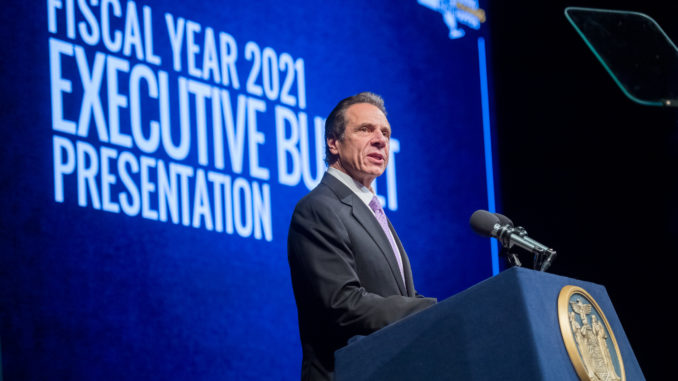
- Disagreements on Revenue—Both Houses of the Legislature included significant “revenue raisers” in their One House Budget proposals and still want to raise taxes on the wealthiest New Yorker’s (read the Senate’s proposals here, and the Assembly’s here). However, they are at odds with Governor Andrew Cuomo and Budget Director Robert Mujica, who signaled Monday there isn’t a need for “significant” increases in taxes for the state budget this year due to the availability of billions in federal funding that would restore cuts proposed in the Governor’s budget in January (at the time, the Executive Budget took a low-end view of a potential federal stimulus as well as tax revenue. Both sources of revenue have come in higher than that budget anticipated: New York is set to receive $12.5 billion from the federal government, a massive one-shot of money meant to offset revenue losses during the COVID-19 pandemic last year). It is worth noting that an agreement on revenue (and subsequent table targets) is the backbone of the entire final budget document that sets the road map for essentially every fiscal negotiation.
- Thornier Issues Still Open—You can’t print the bills if the pens aren’t down. As of yesterday, many issues, including remedying large parts of the Medicaid Redesign Team II recommendations from last year, were still “wide open” with principal negotiators miles apart. If negotiators are still proposing different iterations of smaller parts of the bill, the leadership level conversations cannot close down the bigger picture, meaning nothing in print…
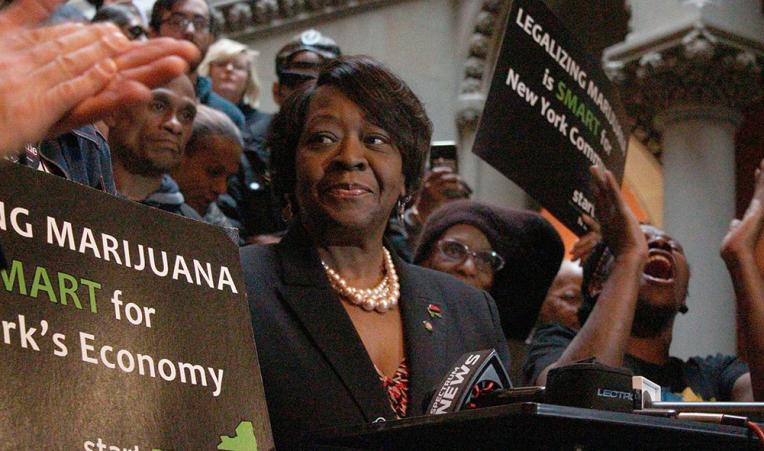 In the absence of a larger budget deal, there was a standalone deal on recreational cannabis (bill text dropped late Saturday night, read it here.) Lawmakers are saying that the bill could come for a vote as early as Tuesday. The three-way deal was a major victory for long time legislative sponsors, Assembly Majority Leader Crystal People-Stokes and Senator Liz Krueger, who secured a number of key concessions from the Executive Chamber, including a dedicated Community Reinvestment Fund (funded by 40% of the revenue) and a Drug Treatment and Pubic Education Fund (funded by 20% of the revenue). Overall, the bill—dubbed the New York State Cannabis/Marijuana Regulation & Taxation Act—will create an overarching regulatory framework overseen by the Office of Cannabis Management, which will be governed by a five-member board — three members appointed by the governor and one appointment by each legislative house. OCM will be “an independent office operating as part of the New York State Liquor Authority,” according to a release from the Governor’s Office.
In the absence of a larger budget deal, there was a standalone deal on recreational cannabis (bill text dropped late Saturday night, read it here.) Lawmakers are saying that the bill could come for a vote as early as Tuesday. The three-way deal was a major victory for long time legislative sponsors, Assembly Majority Leader Crystal People-Stokes and Senator Liz Krueger, who secured a number of key concessions from the Executive Chamber, including a dedicated Community Reinvestment Fund (funded by 40% of the revenue) and a Drug Treatment and Pubic Education Fund (funded by 20% of the revenue). Overall, the bill—dubbed the New York State Cannabis/Marijuana Regulation & Taxation Act—will create an overarching regulatory framework overseen by the Office of Cannabis Management, which will be governed by a five-member board — three members appointed by the governor and one appointment by each legislative house. OCM will be “an independent office operating as part of the New York State Liquor Authority,” according to a release from the Governor’s Office.And while most shifted their focus to substantive negotiations last week, the Governor’s woes continued. The Governor was hit with another scandal last week as reports surfaced Cuomo and the state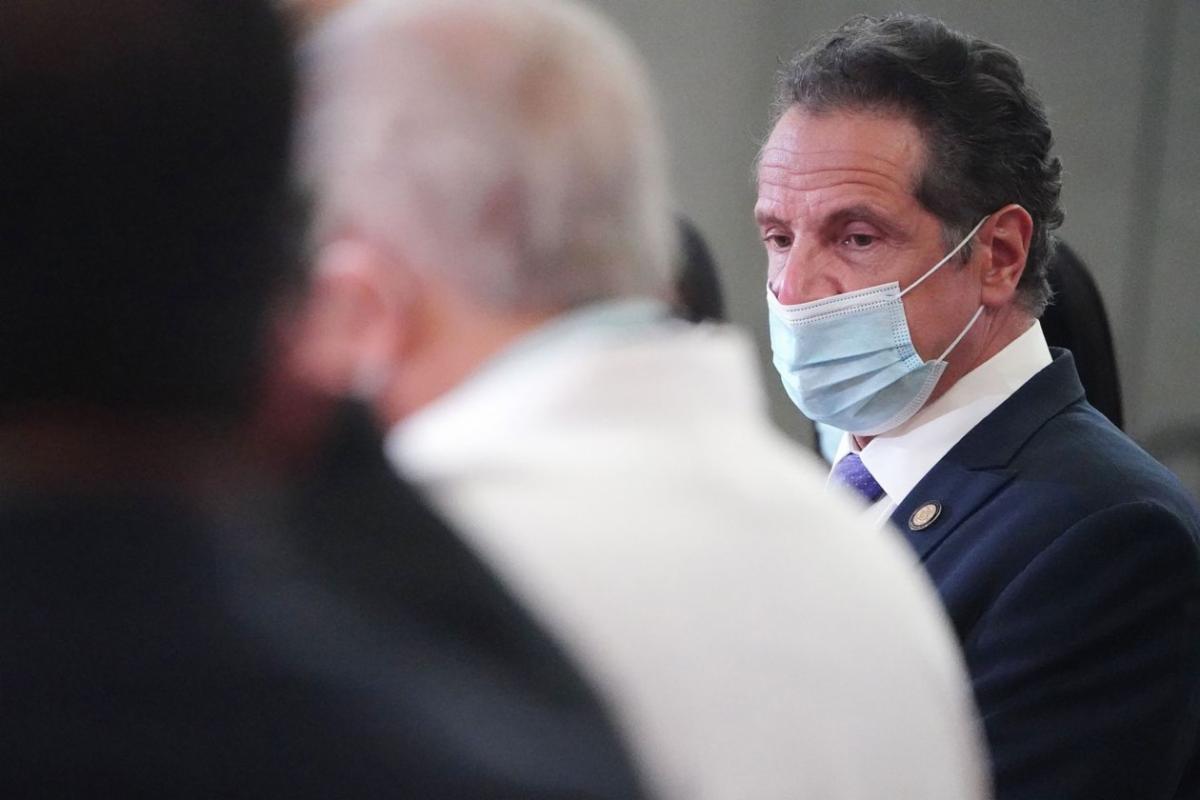 Department of Health provided priority coronavirus tests at the beginning of the pandemic to those with ties to the governor, including his family members and a pharmaceutical company president manufacturing COVID-19 tests for the state. After the news about the alleged preferential treatment broke, Assembly Member Charles Lavine, chair of the Judiciary Committee, said the impeachment investigation would include these new reports. Additionally, the New York state Attorney General’s office has subpoenaed dozens of officials in the Cuomo administration, including his top aide, Melissa DeRosa, requesting that they produce documents as part of an investigation of sexual harassment accusations against the Governor.
Department of Health provided priority coronavirus tests at the beginning of the pandemic to those with ties to the governor, including his family members and a pharmaceutical company president manufacturing COVID-19 tests for the state. After the news about the alleged preferential treatment broke, Assembly Member Charles Lavine, chair of the Judiciary Committee, said the impeachment investigation would include these new reports. Additionally, the New York state Attorney General’s office has subpoenaed dozens of officials in the Cuomo administration, including his top aide, Melissa DeRosa, requesting that they produce documents as part of an investigation of sexual harassment accusations against the Governor.
In the Nation’s Capital…
In Washington, the fate of the filibuster (and its impact on progressive priorities for the remainder of the 117th Congress) is once again at the center of attention. After spending most of his early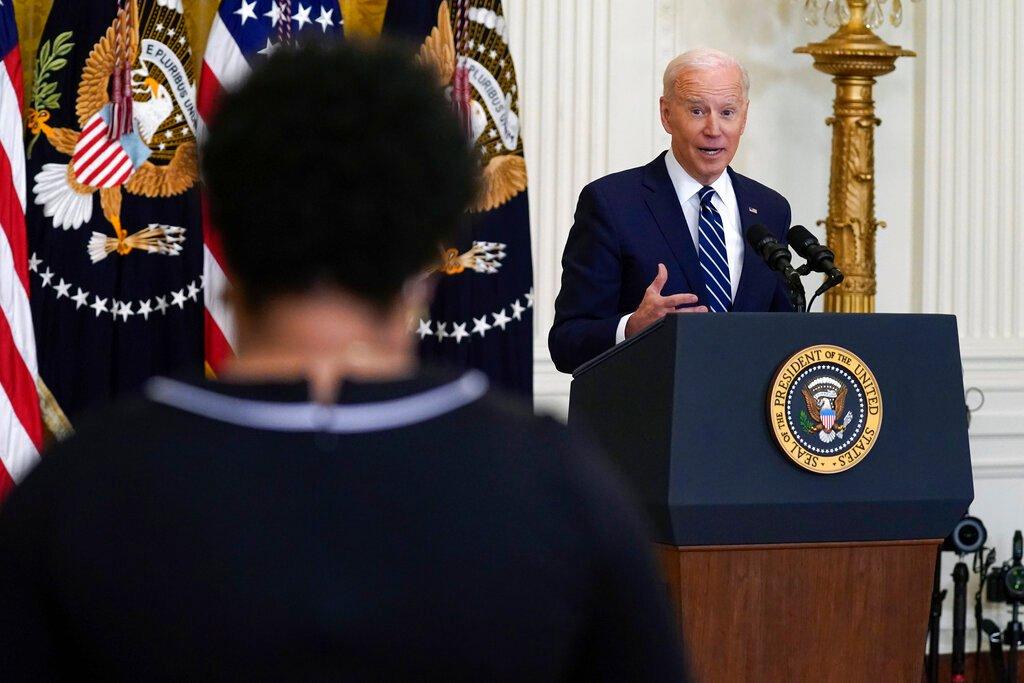 Presidency placing priority on getting Republican support for his agenda (and keeping the filibuster intact while doing so), for the first time last week, President Joe Biden signaled he is open to making “fundamental” changes to the filibuster, saying it was “being abused in a gigantic way.” Though he declined to offer specifics, the President’s openness delighted progressives, whose aggressive agenda is imperiled by the filibuster. In the Senate, tensions over the filibuster were already running high where a growing number of senators are coming out in support of changing the rules and Republicans are pledging to retaliate with a “nuclear winter.” The fight also brings intraparty strife to the forefront for Democrats: centrists like Senator Joe Manchin (D-WV) fighting to keep it intact, while progressives are leaning on Senate Majority Leader Chuck Schumer to get rid of it.
Presidency placing priority on getting Republican support for his agenda (and keeping the filibuster intact while doing so), for the first time last week, President Joe Biden signaled he is open to making “fundamental” changes to the filibuster, saying it was “being abused in a gigantic way.” Though he declined to offer specifics, the President’s openness delighted progressives, whose aggressive agenda is imperiled by the filibuster. In the Senate, tensions over the filibuster were already running high where a growing number of senators are coming out in support of changing the rules and Republicans are pledging to retaliate with a “nuclear winter.” The fight also brings intraparty strife to the forefront for Democrats: centrists like Senator Joe Manchin (D-WV) fighting to keep it intact, while progressives are leaning on Senate Majority Leader Chuck Schumer to get rid of it.
However, some Progressives—including Senate Budget Committee Senator Chair Bernie Sanders (I-Vt.)—already have plans to circumvent the filibuster. Last week, Sanders announced that major
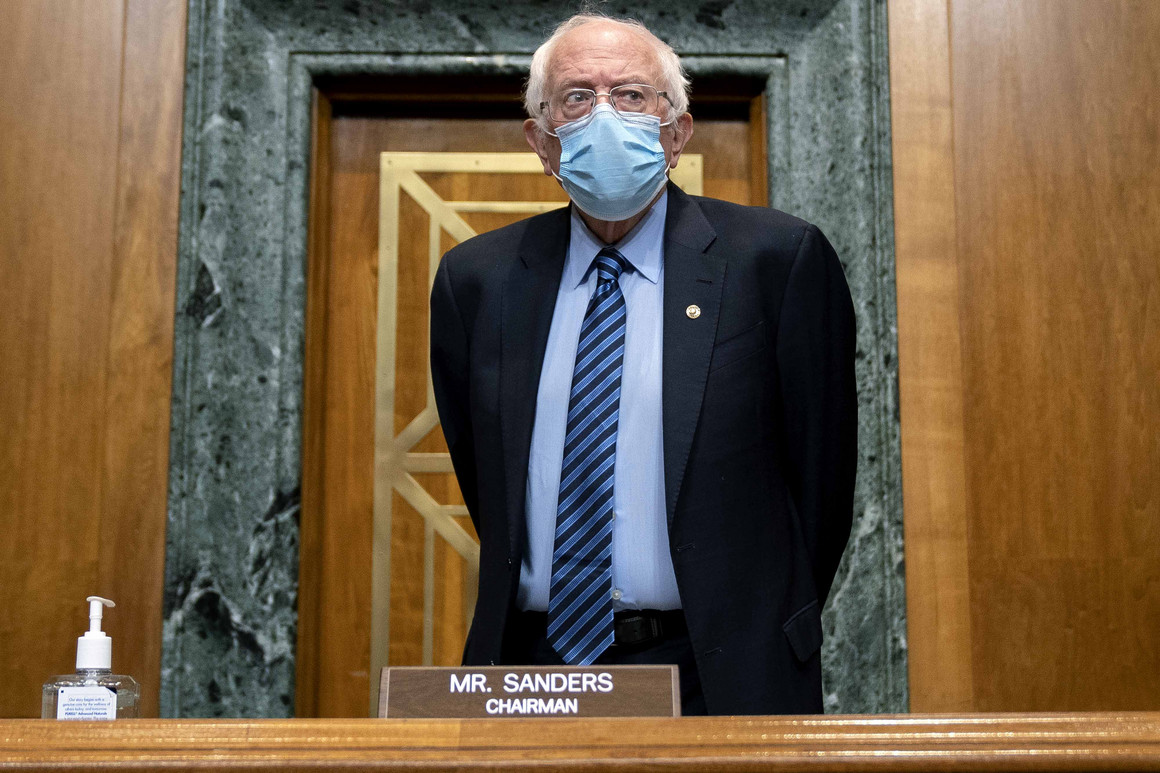 changes to Medicare and prescription drug policy would be rolled into a massive infrastructure bill—not subject to the filibuster—that Democrats are crafting, one that is likely to include tax policy as well. Sanders said that Congress’ recent $1.9 trillion coronavirus relief measure was “an enormous step forward” on the immediate challenges facing the country, but that “now we have to look at the structural long-term problems facing our people. We’re talking about physical infrastructure, affordable housing. We’re talking about transforming our energy system to deal with climate change. We’re talking about human infrastructure. In the rescue plan, we were able to take a major step forward in lowering child poverty — very important. Now I want to deal with issues facing seniors as well.” These changes are just the tip of the iceberg as far as what Progressive Democrats are pushing in the upcoming infrastructure package. Whether or not those riders will make it too unwieldy even for 50 votes in budget reconciliation remains to be seen. Stay tuned this week!
changes to Medicare and prescription drug policy would be rolled into a massive infrastructure bill—not subject to the filibuster—that Democrats are crafting, one that is likely to include tax policy as well. Sanders said that Congress’ recent $1.9 trillion coronavirus relief measure was “an enormous step forward” on the immediate challenges facing the country, but that “now we have to look at the structural long-term problems facing our people. We’re talking about physical infrastructure, affordable housing. We’re talking about transforming our energy system to deal with climate change. We’re talking about human infrastructure. In the rescue plan, we were able to take a major step forward in lowering child poverty — very important. Now I want to deal with issues facing seniors as well.” These changes are just the tip of the iceberg as far as what Progressive Democrats are pushing in the upcoming infrastructure package. Whether or not those riders will make it too unwieldy even for 50 votes in budget reconciliation remains to be seen. Stay tuned this week!
-Jack O’Donnell
FOR DAILY UPDATES, FOLLOW US:
Local Health Advocates Rally Against Potential Cuts to Prescription Drug Program
Trillium Health says it’s worried about potential cuts in this year’s state budget to the 340B prescription drug program, which provides reduced outpatient prescription drug prices for patients in underserved areas. [Read more.]
‘People Shouldn’t Be Afraid of the Word White Privilege’: New Labor Secretary Talks Inequality, Racism and Union Power in First Interview
Marty Walsh, the son of Irish immigrants, talked about his first job, as a paperboy for the Boston Globe, highlighted racial disparities in the labor market and spoke about the importance of unions. [Read more.]
 Donald Trump’s Personal Boeing Reportedly Sits Mouldering At Small New York Airport
Donald Trump’s Personal Boeing Reportedly Sits Mouldering At Small New York Airport
The Boeing 757 that once stood for the glitz and glamour of Donald Trump’s high-flying lifestyle now sits idle, ignored and in disrepair. [Read more.]
NYS Legislature: new member spotlight



 Donald Trump’s Personal Boeing Reportedly Sits Mouldering At Small New York Airport
Donald Trump’s Personal Boeing Reportedly Sits Mouldering At Small New York Airport